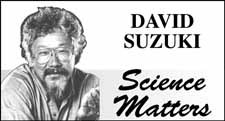Coffee is the second most traded commodity in the world, after oil. And as with oil, the massive scale of production necessary to meet our insatiable demand for coffee results in an enormous ecological footprint. According the UN Food and Agriculture Organization, more than seven million tonnes of coffee will be produced worldwide this year.
The thirst for coffee is growing rapidly in developing countries, like Indonesia, where coffee beans are grown and exported. And while citizens of wealthier nations are cutting their coffee consumption, people in Africa and Â鶹ÊÓƵ America are drinking more - thanks to increasing household incomes, population growth, changing tastes, and successful marketing. The U.S.-based Starbucks coffee chain has even announced that it will open a shop in post-conflict Algeria, with plans to expand to 30 stores in Africa over the next two years.
With so many people drinking coffee (63 per cent of Canadians drink it daily, on average 2.6 cups per day), growers have industrialized production to meet demand. They've done this by establishing high-yield monoculture plantations, spraying toxic pesticides to control unwanted insects and plant pathogens, and even developing genetically modified varieties that allow traditionally shade-grown coffee, like arabica, to be grown under more economically productive conditions in partial or full sunlight.
These industrial agricultural practices have proven successful in ensuring a steady supply of beans to world markets, but the environmental costs associated with much of the coffee consumed worldwide is too high, according to many scientists who study the industry and its impacts.
Most coffee sold in Canada is grown in open plantations on land that was once tropical or subtropical forest. Since the early 1970s, huge swaths of natural rain forest have been cleared in coffee-producing nations such as Mexico, as the industry has shifted from traditional shade production to "sun-grown". A sun-grown variety such as robusta can be planted at more than three times the density of arabica shade coffee. Because of this, most of the mass-produced and instant coffees you see on supermarket shelves are grown in this way.
According to Bridget Stutchbury, an internationally renowned bird expert who has studied the impacts of coffee production on neotropical birds, "Sun coffee is not a self?sufficient ecosystem - it can only be grown with large amounts of fertilizer, fungicides, herbicides and pesticides. There are no trees to shade the coffee plants and soil from the downpours of tropical rains; soil erosion and leaching is a big problem in sun coffee farms."
On top of that, sun-coffee plantations provide little habitat for sensitive species, such as neotropical migratory birds like the hooded warbler, which are threatened because of the loss of their rain-forest habitat.
Troubled by the considerable environmental and social footprint of their favourite beverage, many consumers are looking for coffee that has been certified as organic, Fair Trade, or otherwise sustainably grown. But with so many choices, and confusing and difficult-to-verify environmental claims by businesses, experts recommend that you choose coffee that has been triple certified: organic, Fair Trade, and "shade grown".
Although it won't replace natural forests, growing coffee in shade using agro-ecosystem techniques does provide extensive understory and canopy cover from a diversity of tropical trees, providing a refuge for butterflies, birds, and other wildlife. Studies have shown that shade coffee plantations can provide habitat approaching natural conditions. For instance, a study in the El Triunfo Biosphere Reserve in southern Mexico found that the number of migratory bird species inhabiting a heavily shaded coffee plantation (30 to 35 species) approached that of a natural rain forest (35 to 40 species). In contrast, sun coffee plantations were used by fewer than five species.
As with food labelled organic or Fair Trade, consumers need a credible certification system to guarantee that their cup of coffee has been produced in a way that doesn't harm bird and other wildlife habitat. One credible certification system for shade coffee is the "Bird Friendly" eco-label, which is awarded to producers who follow a rigorous audit and verification process by the Smithsonian Migratory Bird Center.
Switching to certified shade-grown coffee for your morning cup of joe won't save the planet on its own, but it is one more simple way to lessen your environmental impact.
Learn more at www.davidsuzuki.org




